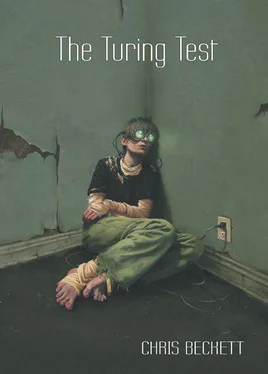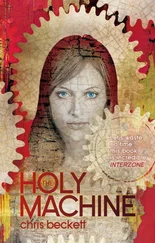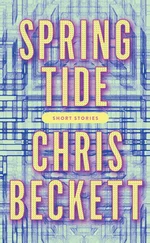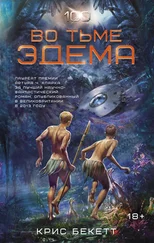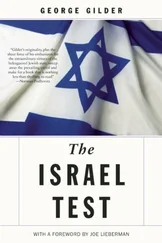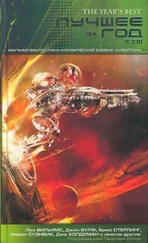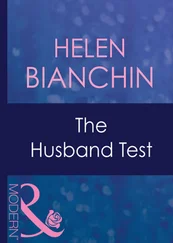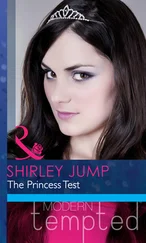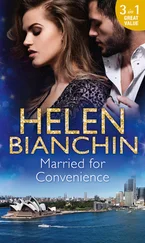I closed the door of my flat and hobbled off down the road towards Peace Square, where the Memorial Statues wait under the cherry blossom for the annual speeches and tears.
On the way I met Harry Higgins, a big burly man with a red beard, always wearing the same brown jacket with the little MRP badge on the lapel.
“Going to the ceremony, eh, Jack?”
I nodded guiltily. “Well, yes. My mum and dad, you know…”
He winked.
“Yeah, of course. Don’t worry mate, I understand. But pop over to the Men’s Pub later, eh Jack? At the end of the day we blokes have got to stick together.”
“Yes, sure, I’ll be there.”
“Good man, good man,” Harry said, patting my arm. “Well, enjoy the ceremony. Your mum is sure to make a good speech. She’s a strong woman, your mum. I admire her. Even if we are on opposite sides.”
I noticed he didn’t mention my dad.
* * *
Outside the Mother-Church I saw Beatrice walking with a girl-friend: Beatrice with her curly blonde hair and her milk-white teeth, Beatrice with her beads and her many rings and her lacy dresses, so nonchalantly flung together but always so stylish and funny and graceful.
God, she is so beautiful that she makes my blood run cold.
“Morning, Beatrice,” I croaked.
She smiled and waved, “Hello Jack!”
I wanted to say something else. I actually stopped to do it. But before I could think of anything, she’d turned away, slipping her arm through her friend’s and giving her a kiss. They were probably lovers.
Alone in a cruel cage of sunlight and blossom and birdsong, I watched them go.
* * *
Under the cherry trees, Mother was giving her customary speech as Town Convenor.
“We’re here to remember the victims of the plague: our husbands, brothers, fathers, sons…”
She touched the statue of the sad woman who looks down at her dead male shadow. Plenty of women there cried. Apart from my father and me, no other men were there. My father was getting ready to speak. I looked away down the square. It was quite empty except for the group under the trees.
“But secondly we’re here to remember the women victims of men in the long centuries before…”
She moved to the second statue: that terrified girl who is groped and clawed eternally by coarse male hands.
“Males are the weaker sex,” my mother said. “More die in the womb, more die as babies and they live shorter lives, perhaps because of the conflict that is hard-wired into their brains. They are not less able, they are not more evil, but they are weaker and for that reason we must never let them take control from us again…”
“Thanks, Mum,” I muttered, and looked away again down the empty square.
But now it was not empty! As if he had fallen from a sky, a young man stood tottering only a few metres from me. He was thin, unshaven, dressed in oddly-cut jeans and a torn blue T-shirt.
There was a faint ozone smell.
“That man is magic, mum,” said a little girl calmly, “He can appear out of the air.” But her mother didn’t hear her.
The stranger looked scared when he saw that the little girl and I had noticed him, so I quickly turned away. I felt as if he was some sort of forest animal who would easily startle.
“It’s not as if we should hate men,” Mum was saying, “I myself love one young man more than I love anyone in the world…”
Here she looked across at me smiling. I blushed and everyone looked at me, knowingly, benevolently. I felt naked, consumed, infantilised.
“But their numbers must be maintained at the present level,” my mother said, “for the good of all of us, men as well as women, boys as well as girls.”
Everyone clapped. Women nearby looked at me as if they expected me to be proud. Some of them glanced at the stranger behind me, but at that moment my father Timothy, with his kindly beard and his twinkly eyes, was climbing up onto the box and they all turned back to see what he would say.
“Thanks my dear,” he said, giving Mum a little kiss as she made way for him.
He is the chair of the Men’s Committee. He and Mum didn’t live together but they were good friends. Now, on behalf of the men of the town, he acknowledged Mum’s speech.
“We men behaved badly in the past,” he said, “but we are learning. Generation after generation, we are learning. And I want to ask all of you to keep your minds open to the possibility that a time will come when men can be trusted again, and our numbers allowed to rise naturally to the proportion that nature intended…”
A middle-aged woman turned to her friend.
“Oh but he is gentle,” she said, “he is a good man. It would be different if they were all like him!”
* * *
“What is this place?” the stranger asked, quietly coming up beside me.
His eyes were very large and blue and he spoke with an odd accent which was not foreign but which I had never heard before.
“It’s Peace Square,” I said. “It’s Memorial Day.”
He stared at me.
“I’m hungry.”
“Do you want me to get you something to eat?”
He still just stared, as if his brain was incapable of processing the sounds that reached his ears.
A cold breeze rustled the cherry blossom. My father’s gentle voice went on about Aggression Control programmes and the need to construct Positive Masculinities.
“Where do you come from?” I asked the stranger. “How did you get here?”
He stared across my shoulder, looking at my father without really seeing him. Then he rubbed his face with his hands.
“I’m so hungry.”
“Like I said, I’ll get you something to eat. But I think we should get away from here.”
He nodded and followed me through the sunlit streets, gazing around at trees, at houses, at people, at notices and signs. We passed an election poster for the RadFems and he stopped to look at it. It showed a frightened woman cowering in a huge male shadow. “NEVER AGAIN!” the poster declaimed, “REDUCE THE QUOTA NOW!”
“Reduce – the – quota – ” the stranger read very slowly aloud, as if he was a child.
“They don’t want us any more, mate,” I said. “That’s what it boils down to. They don’t want us and they don’t need us much either.”
He looked at me, frowning, then turned away from the poster and carried on walking. I had to hobble my quickest just to keep up.
“No cars,” he said after a while.
“No. Well we hardly have any. Not since…”
But he wasn’t listening. We had come to the Mother-Church and he was absorbed in studying the sign outside with its rose-pink mandala. Petals within petals, softly unfolding, and blossoming, and thriving, free from danger at last…
He looked at me.
“Where do I come from?” he said, repeating the question to himself that I’d asked him some time previously. “I don’t remember. So many… So many places.”
Frowning, he started to feel about in his pockets as if they might hold some clues.
“The trees danced ,” he said. “The ground boiled …”
He found a penny coin in his pocket and handed it to me, then he pulled out some dried up bits of leaves and flowers. Little blue flowers, they were: forget-me-nots.
Tears brimmed from his eyes.
“What’s the matter?”
He held out the bits of flower, as if he thought these shrivelled scraps could somehow speak to me and provide some kind of explanation. Tears ran down his cheeks as his whole face screwed up with the effort of remembering and then, quite suddenly, he seemed to relax.
“Jazamine!” he cried. “Jazamine! I was with her by that pool!”
“Who is Jazamine?” I asked him.
Читать дальше
